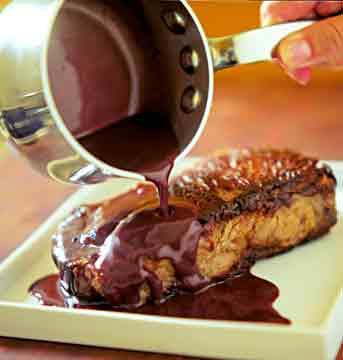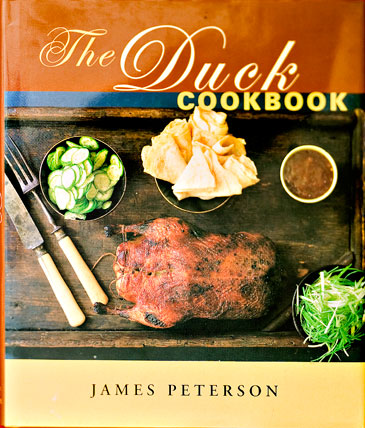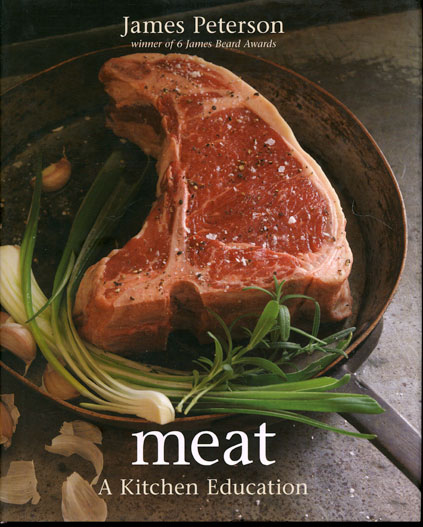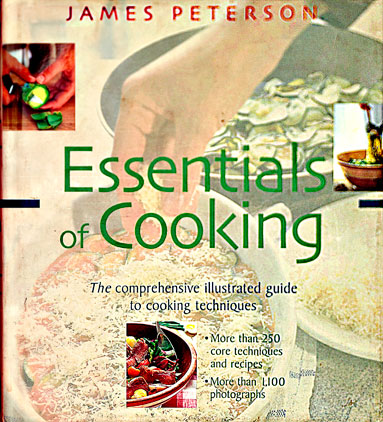by James Peterson
Classical and Contemporary Sauce Making
The winner of the James Beard Foundation’s Cookbook of the Year Award when it was first published over two decades ago, Sauces is, in the words of Mark Bittman, “the single contemporary reference on the subject that is both comprehensive and comprehensible.” Through three successful editions it has established itself as a modern cookbook classic–and an essential reference for every serious cook.
James Peterson trained as a chef in France, and the book offers a thorough grounding in the art of classical French sauce making from hollandaise to bordelaise to mayonnaise and sabayon. But Peterson also presents a wide variety of lighter contemporary sauces–including pan sauces, purees, and vinaigrettes–as well as sauces from around the world, including salsas, pasta sauces, and Asian-style dipping and curry sauces. Best of all, he includes recipes not just for sauces, but for finished dishes. These recipes give Sauces a broader scope, showing how good cooking and sauce making are intimately related–and demonstrating how a correctly prepared sauce can transform a well-cooked dish into something truly sublime.
Now, with this new edition, Peterson has thoroughly revised and expanded Sauces to make it even more indispensable. You’ll find more than sixty all-new recipes for dishes that showcase the leading role of sauces in cooking, such as Chicken Tagine with Harissa Sauce, Osso Buco with Julienned Vegetables, Lobster a la Nage, and Gold-Plated Chicken with Ginger, Saffron, and Almonds. There are intriguing historical reicpes from medieval and seventeenth century Europe as well as broth-based classics such as Pot au Feu and Bollito Misto. And, by popular request, Peterson at last includes a recipe for traditional American Roast Turkey with Giblet Gravy.
This new edition has been completely redesigned to make it easier to use and includes more than thirty beautiful new color photographs of finished dishes with sauces. If you’re a fan of the book’s previous editions, you should note that Peterson has not cut any recipes for this edition, and that he has reinstated the popular sauce charts that appeared in the first edition.

Lively, erudite, and authoritative, Sauces remains the definitive modern work on the subject. And with this edition’s additional recipes–there are now a total of 440–it is now even more valuable as a general cookbook. You’ll find all the techniques and know-how you need to master the art of sauce making, and you’ll also discover how sauces can take your cooking to a whole new level.
Sauces: Classsical and Contemporary Sauce Making, faithful to its title, is a synthesis of the past and present. At nearly a century’s remove, James Peterson has done for sauces that which Escoffier did for the cuisine of La Belle Epoque: simplifying and streamlining methods and techniques and lightening the food to meet the demands of an ever more hurried society, while respecting the architecture of traditional cuisine and stressing the vital importance of fresh produce.
In his introduction to the first edition of Le Guide Culinaire, Escoffier wrote, “I wanted to create a tool, rather than a book…a constant companion, always within hands’ reach…it is reserved especially for young people; for those who, beginning today, will be leaders in their field twenty years hence.” No words could better serve as an introduction to Sauces.
Sauces is, above all, a manual for the professional cook and as such, it will rapidly become a classic and indispensable reference in professional kitchens. But it is much more than a manual, it is a romance as well–a romance with the kitchen–and it is easily accessible to the home cook, to whom particular explanations and suggestions are addressed throughout. There are important sections on improvisation replete with hints and possible paths to follow, lest the reader forget that cooking is a creative art. But that creativity cannot exist in a vacuum; the cook must have a firm hold on the basic precepts of cooking before spreading his or her wings.
After a couple of decades of anarchy and chaos in the kitchen disguised as la nouvelle cuisine, a treatise such as Sauces, grounded in common sense, infuses one with renewed faith.
Richard Olney


